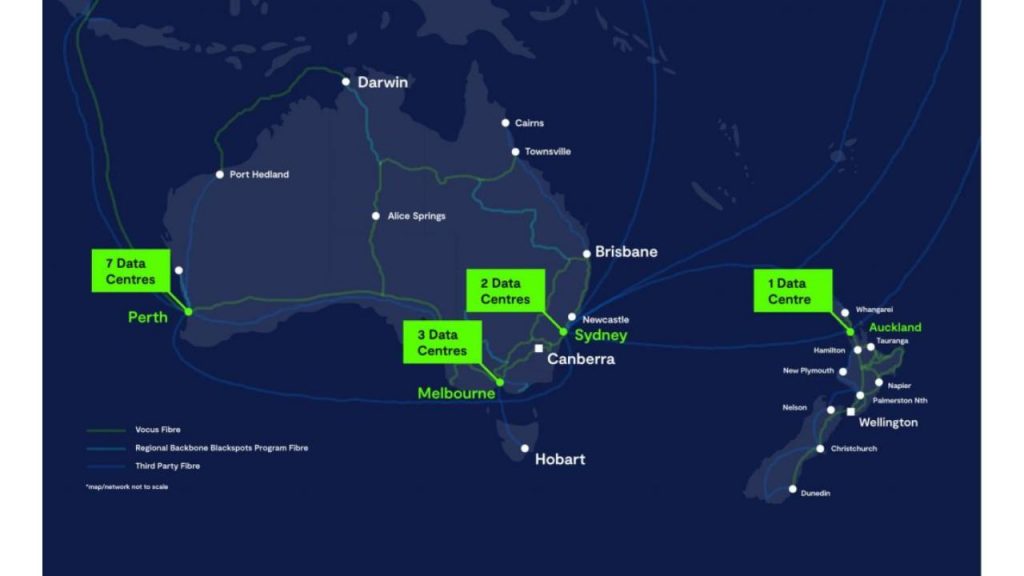- The FIRB has issued the final regulatory approval for Vocus’s A$5.25 billion purchase of TPG’s fibre and fixed-line assets.
- Vocus will connect nearly 20,000 buildings and manage over 50,000 km of fibre, greatly expanding its national network footprint.
What happened: Regulatory green light caps A$5.25B fibre deal
Vocus has secured final approval from the Foreign Investment Review Board (FIRB) for its acquisition of TPG Telecom’s enterprise, government, and wholesale fibre infrastructure. The A$5.25 billion deal, initially announced in 2023, had already cleared the Australian Competition and Consumer Commission earlier this year.
The agreement gives Vocus control of more than 50,000 km of fibre, including critical long-haul and metro routes and the international PPC-1 subsea cable between Sydney and Guam. It also includes infrastructure connecting nearly 20,000 buildings.
TPG Telecom will retain its mobile business (Vodafone Australia), consumer broadband services, and SME fixed-line offerings. The operator expects net proceeds between A$4.65 billion and A$4.75 billion, which it intends to use to reduce debt and improve liquidity.
Also read: Green Packet Global: Carrier‑neutral wholesale for voice and data
Also read: Armatec Global unveils AI Turnkey SaaS under $1M
Why it’s important
The completion of the deal marks a defining shift in the structure of Australia’s telecommunications market. Vocus, already one of the country’s largest infrastructure-focused operators, now dramatically boosts its national and international fibre footprint. It gains key wholesale assets, strengthening its ability to serve enterprise, government, and carrier customers at scale.
The acquisition also positions Vocus to support high-capacity use cases such as 5G transport, edge computing, and future AI workloads—particularly as demand grows for robust, low-latency connectivity. However, such consolidation raises questions about long-term access pricing and competitive neutrality.
For TPG, the sale delivers a substantial capital boost and a narrowed operational focus. But while investors may welcome the leaner model, critics question whether exiting such a strategic infrastructure segment could limit long-term growth and market leverage.
Although the FIRB and ACCC found no major competition concerns, the sheer scale of Vocus’s new footprint will attract scrutiny. How the operator manages infrastructure access and service-level fairness will determine how transformative—or problematic—this consolidation becomes for Australia’s digital economy.

